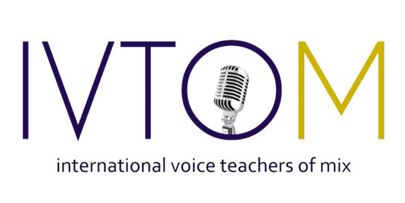Working with Young Children with Strong Voices
Weekly Teaching Tip – June 22, 2015
by Dean Kaelin
Question:
I have a female student who is 10 years of age and has the biggest voice I think I have ever heard for a 10 year old. I feel I get a bit confused with what to do with her and don’t want to fail her as her teacher.
She can sing well thoughout her range smoothly and her head voice is getting really strong its just that first transition that is a hard one. She can sing in a huge voice up to about E5 but to tell you the truth it scares me for such a little person. She definitely has the split resonance but of course weighted on the chesty side. She likes to sing big belty songs at home and her father says that he can hear over the motor bikes when his son is riding!!!!
I have been working on songs that are the lighter higher ones and she just sounds disconnected at times with them.
She definitely finds it hard to get the vocal cords together in the lighter place. This is my challenge to help her. I get frustrated because she can connect well with a Gurg (octave repeat) and the long scale in that chestier mix but not the lighter one. She connects well with edgy ee (i) on a 9 tone scale but again in the full mix.
I get her in a good mix often but she then just goes back to the belty way again.
I checked with another teacher and this teacher felt that my student was doing better at the belty ones as she was more connected and was too “disconnected” on the lighter ones and suggested I just to keep working with the “Nees” to get her to accept that smaller place. When I get my student to narrow the vowels of course it works like a charm to get her in the mix, but she is still not totally free. There is still muscle tension under the chin. It’s definitely getting better. I just feel that when she goes home she starts to push again.
Any advice? She is such a precious little thing and I just want to do the best I can for her. She is very committed to her lessons and her family are very supportive.
I just don’t want to fail her. 🙁 HELP
Answer: I appreciated receiving your email and understand your concerns. Thanks for having concerns!
I am currently working with a 9 year old that sounds like pretty much a carbon copy of your 10 year old. Here’s the thing…the thing that makes them “special” to the world is that they have this big, powerful voice. As such, everybody loves them and thinks they are amazing. However, we as teachers know that if they keep this up their gift will diminish in time. Other singers will catch up to them and even pass them if they don’t develop some technique to enhance their gift.
So, what to do? If we make them sing all light and pretty they won’t be “special” anymore and they won’t get any attention. But if we let them go ahead and “blow it out” all the time, as their voice changes and deepens they won’t be able to do that anymore. They will just turn into low, belt/yell singers, and they may still be pretty good and may still have a powerful voice, but they won’t have any range and they will constantly be dealing with vocal issues, ala Adele.
I guess the question is, can we somehow help them find a balance so they can continue to be powerful and impressive, yet do things that will save their voice and not ruin their career by the time they are 16?
First, you need to realize that children’s vocal cords are EXTREMELY resiliant. They are also EXTREMELY stretchy. So, my guess is that your singer is really not bridging at the Bb4/B4 like she is supposed to and like most females do. There is a good chance that she is actually pulling chest right up to that Eb4 which is why she can hit that when she is “belty” but it falls apart when she tries to go light. Kids can often do this. However, once her voice changes she won’t be able to anymore. Her “belty” high note will become the C4, then she will totally have to flip. So, she can get away with it now, but she won’t be able to for too many more years. If she doesn’t learn how to bridge she will end up a low, yelly singer. Fortunately this doesn’t mean she won’t still be able to have a career, because it has become acceptable in the past 10 years that girls can just get by with nothing more than a big chest voice. The majority of the girls on the radio the past 10 years have been doing this.
So, what would I do? I would continue to allow her to sing big and powerful when she sings big and powerful songs so that she can continue to be impressive. However, I would REALLY help her concentrate on getting really good, narrow, round and centered vowels and try and make sure she gets at least a little mix and it’s not a full yell. I would continue to vocalize her up to at least G5 to force her to at least access her head voice, even if it is kind of light and then try to strengthen it by using nn, French nasals, ng, etc. I would start with just vowels and soft consonant sounds and then eventually put the consonants and vowels together. I would also occasionally have her sing songs like “I Could Have Danced All Night” that make her sing in an almost “Classical” head voice just so she gets used to at least singing in her head voice so that she has a chance to eventually develop a solid mix as she gets older. It is also very helpful to have her start at the G5 (or even higher) and slide down, beginning with narrow vowels and then broadening the vowels. It is often easier for these singers to develop their mix and connection from the top down rather than going from the bottom up.
The other thing you could try now that there are a few singers that are singing higher and doing it pretty well is to give her some of those songs and see if she can’t discover the “little place” that will allow her to keep the feeling of belting and still get into her upper range by imitating the original singer. Songs like the bridge on Pink’s “Just Give Me a Reason” or Ariana Grande or Demi Lavato.
We don’t want to take away her gift, but we also can’t allow her to abuse her gift. Those are my thoughts!
Dean Kaelin

